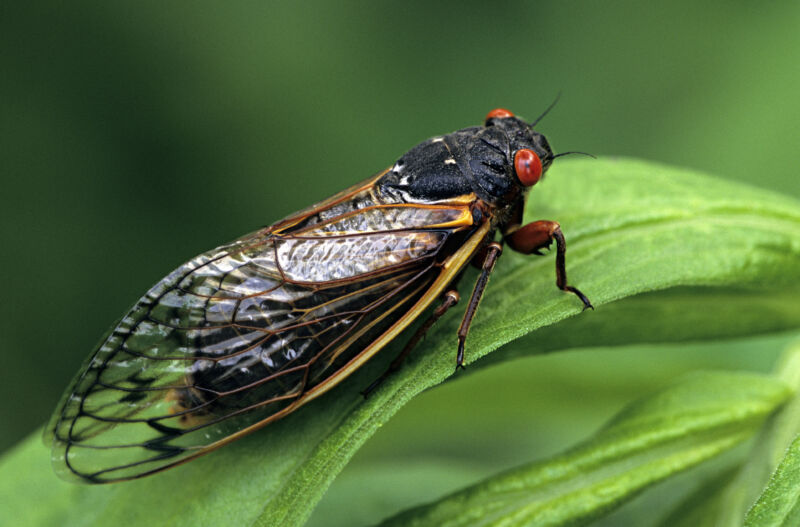The entire state of Illinois is going to be crawling with cicadas

Enlarge (credit: Ed Reschke via Getty)
Brace yourselves, Illinoisans: A truly shocking number of cicadas are about to live, make sweet love, and die in a tree near you. Two broods of periodical cicadas—Brood XIX on a 13-year cycle and Brood XIII on a 17-year cycle—are slated to emerge together in central Illinois this summer for the first time in over two centuries. To most humans, they’re an ephemeral spectacle and an ear-splitting nuisance, and then they’re gone. To many other Midwestern animals, plants, and microbes, they’re a rare feast, bringing new life to forests long past their death.
From Nebraska to New York, 15 broods of periodical cicadas grow underground, quietly sipping watery sap from tree roots. After 13 or 17 years (depending on the brood), countless inch-long adults dig themselves out in sync, crawling out of the ground en masse for a monthlong summer orgy. After mating, they lay eggs in forest trees and die, leaving their tree-born babies to fall to the forest floor and begin the cycle anew. Cicadas don’t fly far from their birthplace, so each brood occupies a distinct patch of the US. “They form a mosaic on the landscape,” says Chris Simon, senior research scientist in ecology and evolutionary biology at the University of Connecticut.
Most years, at least one of these 15 broods emerges (annual cicadas, not to be confused with their smaller periodical cousins, pop up separately every summer). Sometimes two broods emerge at the same time. It’s also not unheard of for multiple broods to coexist in the same place. “What’s unusual is that these two broods are adjacent,” says John Lill, insect ecologist at George Washington University. “Illinois is going to be ground zero. From the very top to the very bottom of the state, it’s going to be covered in cicadas.” The last time that these broods swarmed aboveground together, Thomas Jefferson was president and the city of Chicago had yet to exist.
This post has been read 97 times!
